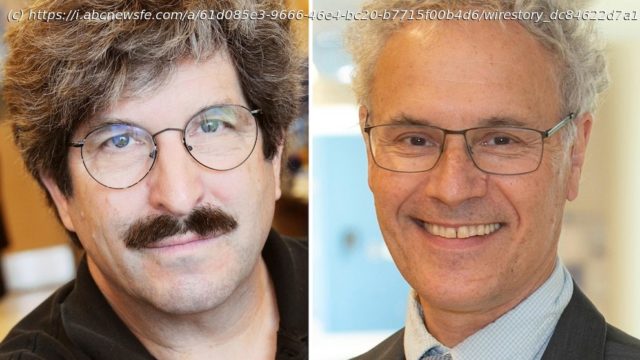Two scientists have won the Nobel Prize in physiology or medicine for their discovery of microRNA, tiny bits of genetic material that offer a way for scientists to control what’s happening in our cells
Two scientists won the Nobel Prize in physiology or medicine on Monday for their discovery of microRNA, tiny bits of genetic material that offer a way for scientists to control what’s happening in our cells and that could lead to new ways of detecting and treating diseases including cancer.
The work by Americans Victor Ambros and Gary Ruvkun is “proving to be fundamentally important for how organisms develop and function », according to a panel that awarded the prize in Stockholm.
Ambros and Ruvkun were initially interested in genes that control the timing of different genetic developments, ensuring that cell types develop at the right time.
Their discovery ultimately “revealed a new dimension to gene regulation, essential for all complex life forms,” the panel said.
RNA is best known for carrying instructions for how to make proteins from DNA in the nucleus of the cell to tiny cellular factories that actually build the proteins. MicroRNA does not make proteins, but help to control what cells are doing, including switching on and off critical genes that make proteins.
Ambros and Ruvkun studied two mutant strains of worms commonly used as research models. The scientists set out to identify the mutated genes responsible for cell development in these worms and what their role was. The mechanism they ultimately identified — the regulation of genes by microRNA — has allowed organisms to evolve for hundreds of millions of years.
“Their groundbreaking discovery revealed a completely new principle of gene regulation that turned out to be essential for multicellular organisms, including humans,” according to the citation explaining the importance of their work.
Ambros, currently a professor of natural science at the University of Massachusetts Medical School, performed the research at Harvard University. Ruvkun’s research was performed at Massachusetts General Hospital and Harvard Medical School, where he’s a professor of genetics.
Home
United States
USA — mix Nobel Prize in medicine honors 2 scientists for their discovery of microRNA






